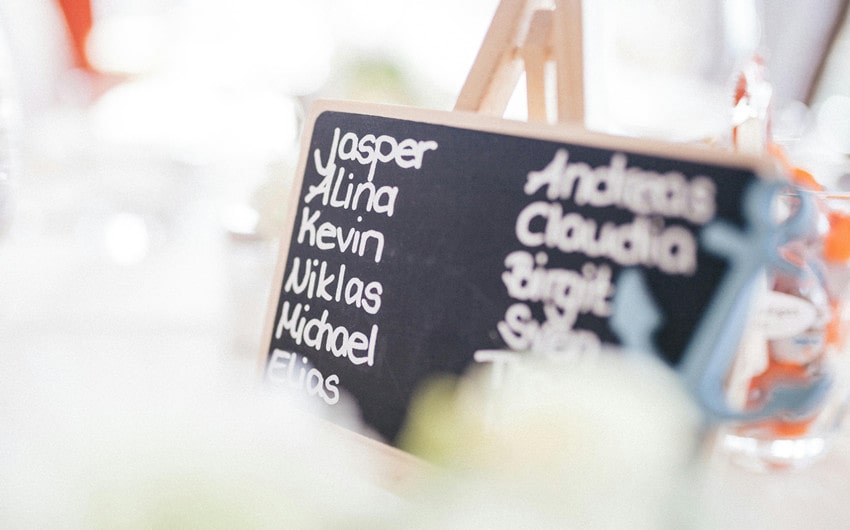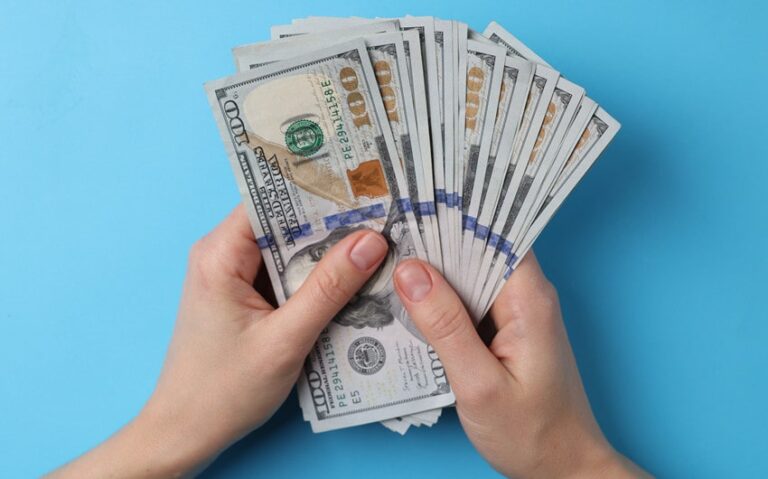62 Forbidden Names You Can’t Name Your Child Worldwide
Choosing a name for your child is one of the first big decisions you’ll make as a parent, but not every name is fair game. Around the world, there are names you can’t name your child, whether due to legal restrictions, cultural sensitivities, or potential harm to the child.
Understanding these limitations can help you avoid unexpected complications and ensure that your child’s name is both meaningful and appropriate. Let’s explore some of the fascinating reasons behind these rules and take a look at examples from different countries.
Examples of Banned or Restricted Names Around the World

1. Banned Names in the United States
- Lucifer: Banned in some states due to its strong association with the devil in Christian theology, considered inappropriate and potentially harmful for a child.
- Messiah: Initially banned in Tennessee because it was deemed a title reserved for religious figures, though a court ruling later allowed its use.
- King: Rejected in some states because it is considered a title rather than a personal name, which could cause social or legal issues.
- Queen: Similar to “King,” this name has been challenged due to its status as a title, which is not considered appropriate for a personal name.
- Jesus Christ: Banned in certain regions due to its sacredness in Christianity, where using it as a personal name is seen as highly inappropriate.
- III: Numeric designations like “III” are often not allowed in many states because numbers are not recognized as part of a legal name.
- Santa Claus: Rejected in some states as it is deemed a fictional character and could lead to potential ridicule or confusion.
- @: Symbols like “@” are generally not permitted in names as they are not legally recognized characters.
- Mister: Rejected in some states because it is a title and not suitable as a personal name.
- Sir: Similar to “Mister,” this name is not accepted because it is a title of respect, not a personal name.
- Adolf Hitler: Banned in some states due to its association with the Nazi dictator, making it an offensive and inappropriate name.
- Devil: Rejected in some states because of its negative connotations and potential to cause harm to the child.
- God: Not allowed in certain areas due to its religious significance, making it inappropriate for use as a personal name.
- Majesty: This name is banned in some regions because it is a royal title and not suitable for a personal name.
- General: Rejected because it is a military rank, not a suitable name for a child.
- Judge: Banned for being a title, which could cause legal complications or social issues.
- President: This name is not accepted as it is a political title, not intended for use as a personal name.
- Rogue: Rejected in some states because it has a negative connotation and could be harmful or lead to ridicule.
- Batman: Banned in some areas as it is a fictional character’s name, which could lead to confusion or ridicule.
- Anal: Prohibited due to its vulgar and inappropriate nature, which could cause significant harm to a child.
- Sex Fruit: Banned for being vulgar and inappropriate, clearly not suitable for a child’s name.
- Nutella: Rejected because it is a brand name, and using brand names as personal names can lead to legal issues.
- Cyanide: This name is banned because it is associated with a deadly poison, making it highly inappropriate and harmful.
- Robocop: Rejected in some areas for being a fictional character’s name, which could lead to ridicule or legal complications.
- Comma: Symbols like commas are generally not legally recognized as part of a name, leading to their rejection.
- Prince: Not accepted because it is a title rather than a name, which could cause social or legal issues.
- Royal: Banned in some regions because it is associated with monarchy and not considered a suitable personal name.
- Saint: Rejected in certain areas due to its religious connotations, making it inappropriate for a personal name.
- F@rt: Prohibited for including a symbol and for being vulgar and inappropriate, which could cause harm or ridicule.
2. Banned Names in Europe
- Fraise: Banned in France because it means “strawberry” in French and could be derogatory or lead to teasing.
- Prince William: Rejected in France because it is a royal title and could cause confusion or be seen as impersonating royalty.
- Mini Cooper: Prohibited in France as it is a brand name, and naming a child after a brand is considered inappropriate.
- Hermione: In certain regions of France, this name has been rejected due to its strong association with the popular character from the Harry Potter series.
- Rambo: Banned in Norway due to its association with the violent movie character, making it unsuitable for a child.
- Monkey: Rejected in Denmark because it is considered derogatory and inappropriate for a child.
- Pluto: Prohibited in Denmark as it is associated with a cartoon character, which could lead to ridicule.
- Anus: Banned in Denmark for being vulgar and highly inappropriate for a child’s name.
- Elvis: Initially banned in Sweden for being considered unsuitable for a child, though it was later allowed.
- Metallica: Rejected in Sweden as it is a brand name and not appropriate for a personal name.
- Brfxxccxxmnpcccclllmmnprxvclmnckssqlbb11116: This name was proposed in Sweden as a protest against strict naming laws and was rejected for being nonsensical.
- Q: Banned in Sweden because it is too short and not considered a proper name.
- IKEA: Rejected in Sweden for being a brand name, which is not suitable for a child’s name.
- Camilla: Banned in Iceland as it does not conform to Icelandic naming conventions, which require names to fit Icelandic grammatical rules.
- Harriet: Prohibited in Iceland for not fitting the Icelandic language rules, which require names to be compatible with the language.
- Duke: Rejected in Germany because it is a title and not suitable as a personal name.
- Stompie: Banned in Germany as it is a derogatory term and could cause harm or ridicule.
- Chow Tow: Banned in Malaysia for meaning “smelly head” in Cantonese, which could lead to bullying.
- Osama Bin Laden: Prohibited in Germany due to its association with the terrorist leader, making it highly inappropriate.
- Akuma: Banned in Japan because it means “devil” in Japanese, which is considered harmful and inappropriate for a child.
- Fish and Chips: Rejected in New Zealand as it is a phrase, not a proper name, and could lead to ridicule.
- James Bond: Banned in Germany as it is associated with the fictional character, making it unsuitable for a child.
- Matti: Prohibited in Germany because it does not clearly indicate the gender of the child, which is required by law.
- Talula Does The Hula From Hawaii: Banned in New Zealand for being overly long and potentially causing embarrassment to the child.
3. Banned Names in Other Parts of the World
- V8: Banned in Australia as it is the name of a car engine, which is not suitable for a child’s name.
- Facebook: Prohibited in Mexico because it is a brand name, which is considered inappropriate for a child.
- 007: Rejected in Malaysia because it is associated with the fictional character James Bond and is not appropriate as a personal name.
- Bonghead: Prohibited in Australia for being vulgar and inappropriate for a child’s name.
- Circumcision: Banned in Mexico for being inappropriate and potentially harmful, clearly not suitable as a name.
- Snake: Rejected in Malaysia as it is associated with a dangerous animal, making it inappropriate for a child’s name.
- Stalin: Prohibited in Russia due to its association with the Soviet dictator, making it a highly sensitive and inappropriate name.
- Princess: Banned in New Zealand as it is a title rather than a name, which could cause social or legal complications.
- Friday: Rejected in Italy because it could lead to ridicule, as it is seen more as a day of the week than a personal name.
Reasons Why Certain Names Are Banned

Naming laws and restrictions vary widely across different cultures and countries, but the underlying reasons for banning or restricting certain names often share common themes. These reasons are rooted in societal values, legal standards, and concerns about the welfare of the child. Below are the primary reasons why certain names are banned or restricted:
1. Offensive or Inappropriate Language
Vulgarity and Profanity: Names that include vulgar, obscene, or profane language are commonly banned to protect the child from potential harm and to uphold societal standards. For example, names like “F@rt” or “Anal” are banned because they contain vulgar elements that could subject the child to ridicule, bullying, or social ostracism.
Hate Speech and Discrimination: Names that contain elements of hate speech or are linked to discriminatory ideologies are often banned. For instance, names like “Adolf Hitler” or “Stalin” are prohibited in many places due to their association with historical figures responsible for atrocities and human rights violations. These names are considered offensive and harmful not only to the individual child but also to broader societal values.
Sexual Content: Names that are sexually explicit or suggestive are also banned in many regions. For example, names like “Sex Fruit” are considered inappropriate and are banned to protect the child from embarrassment and to maintain public decency.
2. Potential for Harm or Ridicule
Embarrassment and Bullying: Names that are likely to subject the child to embarrassment or bullying are often restricted or banned. For example, names like “Nutella” or “Talula Does The Hula From Hawaii” have been banned because they are seen as setting the child up for ridicule or unnecessary attention. The goal is to prevent psychological harm and ensure that the name does not hinder the child’s social integration.
Inappropriate Associations: Names that are strongly associated with negative concepts, such as “Cyanide” or “Lucifer,” are banned because they carry connotations that could cause distress or discomfort to the child and others. These names are deemed unsuitable as they may lead to the child being ostracized or treated unfairly due to the negative associations.
Overly Complex or Impractical Names: Some names are banned because they are excessively long, complex, or impractical. For instance, the name “Brfxxccxxmnpcccclllmmnprxvclmnckssqlbb11116,” proposed in Sweden, was rejected because it is nonsensical and impractical, potentially causing difficulties for the child in everyday life, such as filling out forms or being called upon in class.
3. Cultural and Religious Sensitivities
Religious Connotations: Names that have significant religious meanings or are considered sacred are sometimes banned to prevent misuse and to respect religious traditions. For example, names like “Jesus Christ” or “God” are banned in some regions because they are considered sacred and using them as personal names is seen as blasphemous or disrespectful.
Cultural Appropriation: In some cases, names that are deeply rooted in one culture may be banned for use in another to avoid cultural appropriation or disrespect. For instance, names that hold particular significance in indigenous or minority cultures may be restricted to prevent them from being used inappropriately by those outside the culture.
Protection of National Identity: Some countries have naming laws that protect national identity by ensuring that names are compatible with the country’s language, culture, or heritage. For example, in Iceland, names must conform to Icelandic grammatical rules and be compatible with Icelandic cultural norms. Names like “Harriet” or “Camilla” have been banned in Iceland for not fitting these linguistic and cultural criteria.
4. Legal and Government Restrictions
Prohibition of Titles and Ranks: Names that include titles, ranks, or honorifics such as “King,” “Queen,” “General,” or “President” are often banned because they can cause confusion or give the impression that the individual holds an official position. These names are seen as inappropriate for use as personal names because they may convey a status that the individual does not actually possess.
Brand Names and Trademarks: Names that are derived from brand names, trademarks, or commercial entities are often banned to prevent legal complications and to protect intellectual property rights. For example, names like “Nutella” or “IKEA” are banned in some regions because they are recognized brands, and using them as personal names could infringe on trademark laws or be seen as inappropriate commercialization.
Prohibition of Symbols and Numbers: Many countries have laws that prohibit the use of symbols, numbers, or punctuation marks in names because these elements are not recognized as part of a legal name. For example, names like “@” or “III” are often banned because they do not conform to the standard legal requirements for naming. This ensures that names are practical and usable in official documents and everyday life.







